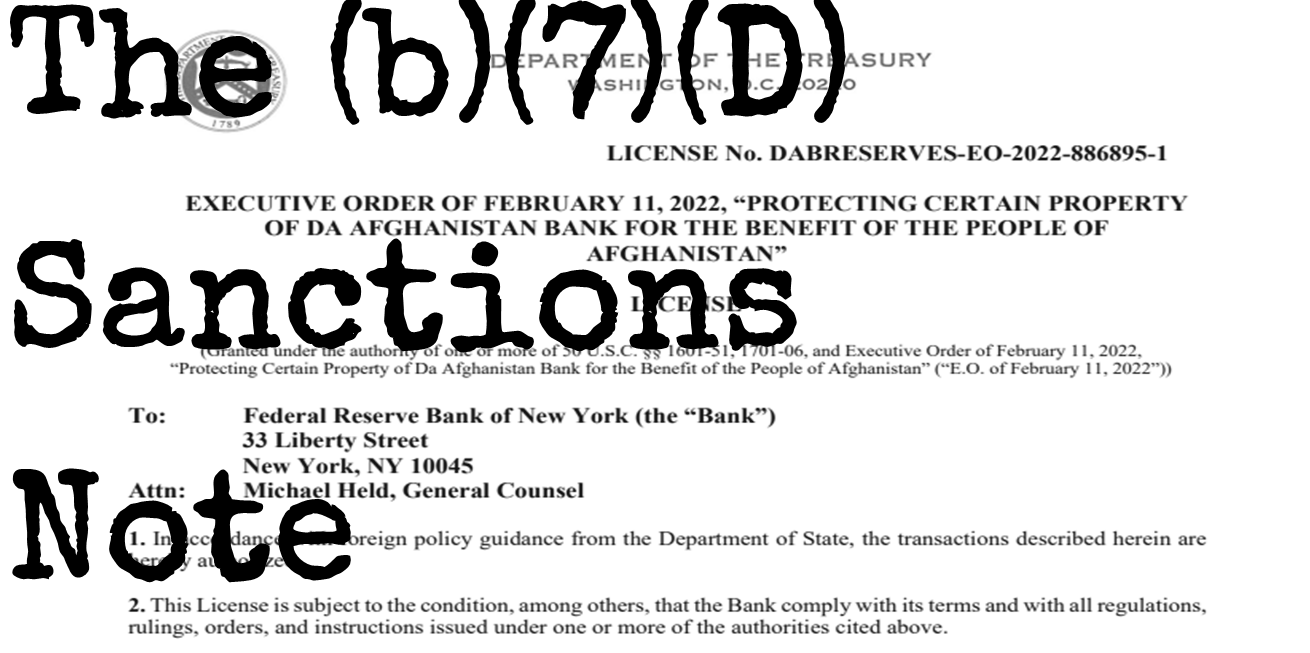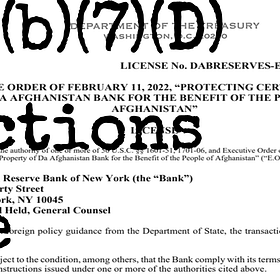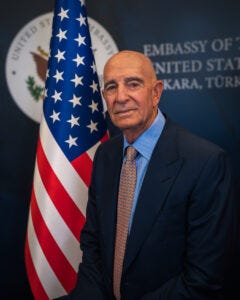US DISMANTLES DECADES-OLD SYRIA SANCTIONS
STATE DEPARTMENT REMAINS SILENT ON DECISION TO LIFT TERROR DESIGNATION AGAINST SYRIAN PRESIDENT
On Monday, the US formally lifted the decades-old sanctions regime against Syria’s new government. However, the State Department declined to say whether terrorism designations would remain in place for President Ahmed al-Sharaa, the Al Nusra Front, or Syria as a whole.
Monday’s actions came after President Trump announced the sanctions relief on May 13, during the Saudi leg of his Middle East trip. One day later, Trump met with al-Sharaa in Riyadh. In late May, the U.S. issued a general license which provided the first sanctions relief for Syria in decades. The U.S. sanctions rollback in May authorized transactions with top-tier Syrian institutions, including the Syrian Central Bank, Syrian Arab Airlines, the country’s oil and gas sectors, and multiple government ministries.
US LIFTS SANCTIONS ON SYRIA
On Friday, the U.S. Treasury’s Office of Foreign Assets Control issued Syria General License No. 25, effectively lifting decade-old sanctions on key Syrian institutions. The relief includes the Syrian Central Bank, Syrian Arab Airlines, the Syrian oil and gas industries and multiple government ministries.
On Monday, President Trump issued a sweeping executive order that rescinded six previous executive orders sanctioning Syria dating back to the administrations of George W. Bush and Barack Obama. Requests for comment about the revocation of the previous sanctions from the Office of George W. Bush and the Office of Barack and Michelle Obama were not returned.
Not all persons subject to Syrian sanctions obtained relief. The new executive order also targeted former officials of the deposed regime of Bashar al-Assad, those involved in kidnapping Americans and persons involved in the production of captagon, a drug the former regime produced and trafficked to finance its operations in the Syrian Civil War.
Monday’s executive order directed Secretary of the Treasury Scott Bessent and Secretary of State Rubio to “take all appropriate action” to review the designations of the ruling Al-Nusra Front as a terrorist organization and President al-Sharaa as a terrorist.
Syrian President Ahmed al-Sharaa, (Courtesy, Office of the President of Azerbaijan).
When asked whether the State Department intended to lift the terrorist designations against al-Nusra Front, President Ahmed al-Sharaa, and Syria, a department spokesperson—speaking on background—referred The (b)(7)(D) to a fact sheet issued by the White House, a press statement from Secretary of State own press release, and a press release from the Treasury Department.
In his statement, Secretary Rubio pledged to “examine the potential full suspension of the Caesar Act, take all appropriate action with respect to the Foreign Terrorist Organization designation of Hay’at Tahrir al-Sham (HTS), and review the Specially Designated Global Terrorist designations of HTS and President al-Sharaa, as well as Syria’s State Sponsor of Terrorism designation.”
Previously, the U.S. had offered a $10 million reward for the capture of al-Sharaa. In December, the Biden administration announced they were dropping the $10 million bounty after al-Sharaa gave “positive messages” after meeting with State Department officials.
In a sign of his rising influence on U.S. policy in the region, the State Department briefing on the change included long-time Trump friend, U.S. Envoy to Syria and Ambassador to Turkey, Thomas Barrack. Barrack, 78, has been a friend of the President since the 1980s, when he bested Trump in a series of negotiations for New York’s famed Plaza Hotel.
PLAYED LIKE A STRADIVARIUS
U.S. Trade negotiations with China are to begin Friday in Switzerland. Analysts suggest that China will take a tough stance against the Trump administration. While the White House calls Trump the “Dealmaker-in-Chief,” The Atlantic’s Michael Schuman argues that “U.S. policy
In the briefing, Barrack denied that the U.S. was engaging in nation-building in Syria. The U.S. envoy to Damascus colorfully described the process of sanctions relief as “unwrapping an onion.” Appointed to the Syrian role in May, Barrack now holds dual titles as Ambassador to Turkey and Special Envoy to Syria. His late May visit to Damascus included meetings with al-Sharaa and other Syrian officials.
U.S. Ambassador to Turkey, Thomas Barrack (Courtesy U.S. State Department)
In early June, Barrack met with Israeli Prime Minister Benjamin Netanyahu to discuss Israel’s occupation of a 15-km belt of Syrian territory and broader regional dynamics. After originally opposing engagement with Syria’s new leadership, Israel has now shifted course, seeking an updated security deal with the new government. On Monday, Israeli officials told The Times of Israel that the country was in “advanced talks” with the Syrians on a security deal and hoped to bring Syria into the “Abraham Accords” Israel’s U.S.-brokered normalization framework with the United Arab Emirates and Bahrain. A request for comment regarding the termination of Syrian sanctions from the Office of Prime Minister Netanyahu was not returned.






